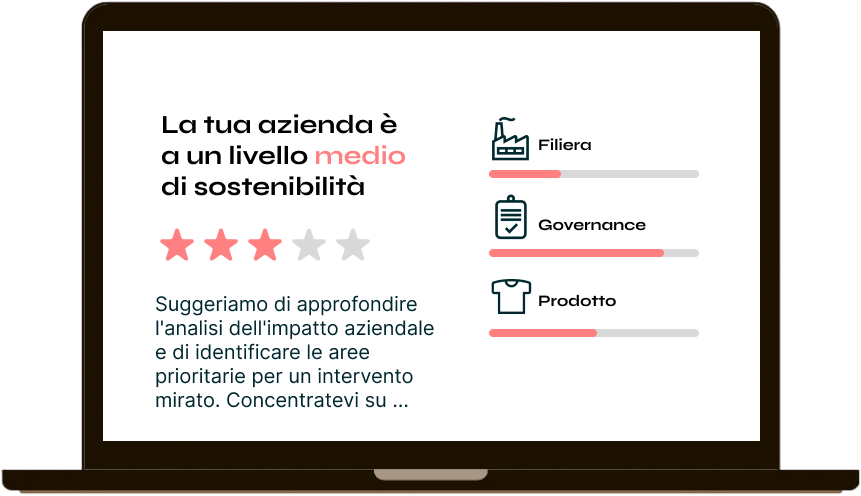The measures and objectives of the EU Strategy for Sustainable and Circular Textiles
On 30 March 2022, the European Commission adopted the Sustainable Product Initiative, a package of proposals that includes, among others, a strategy dedicated to the textile sector: by 2030, all textile products marketed in the European Union must be durable, repairable, recyclable, made as far as possible from recycled fibers, free of hazardous substances and produced in an environmentally and socially responsible manner. This is the aim of the new EU Strategy for Sustainable and Circular Textiles, which is part of the European Green Deal and the Action Plan for the Circular Economy, addressing issues related to fast fashion, textile waste and the destruction of unsold textiles.
Such an ambitious vision is motivated by the awareness that European textile consumption ranks fourth in terms of environmental impact and climate change caused, after the food, real estate and transport sectors.
Moreover, the textile industry is among the top three economic activities using the most water and land, and the fifth in terms of raw material use and greenhouse gas emissions.
Less than 1% of textile waste is recycled into new clothing fibers and, on a global scale, the equivalent of one truckload of textiles is landfilled or incinerated every second. Meanwhile, textile production and consumption are constantly expanding, as global textile production almost doubled between 2000 and 2015, and clothing and footwear consumption is expected to increase by 63% by 2030.
However, the textile and clothing sector employs more than 1.5 million European citizens and is a key resource for stimulating local employment and business opportunities.
What measures does the new strategy envisage?
Within the Strategy for Sustainable and Circular Textiles, a concept of relevance and novelty emerges, namely the explicit consideration of the business model of fast fashion as obsolete and unfashionable. The Commission's intention is that textile manufacturers take responsibility for their products along the entire value chain, in a sector that must be characterized as competitive, innovative and oriented towards a sustainable and digital transition.
The specific measures and regulations drawn up under the umbrella of the strategy will have an impact on consumers and companies both in the EU and globally, and among these, the proposal for a regulation on Ecodesign for Sustainable Products Regulation (ESPR) is certainly the backbone. In fact, the proposal defines ecodesign requirements for certain product categories in order to achieve a marked improvement in their circularity, energy performance and other aspects of environmental sustainability. For textile products, mandatory minimum requirements are set for the inclusion of recycled fibers, which is likely to have a positive impact on consumers, providing them with more sustainable and durable textiles. Companies, for their part, will have to invest in new technologies and processes to meet the design requirements.
Also under the Ecodesign Regulation for Sustainable Products, measures are established to prevent and stop the destruction of unsold consumer goods. Companies will have to publicly disclose the number of discarded products, the reasons for discarded volumes and information on the volume of products intended for reuse, remanufacturing, recycling, energy recovery and disposal operations. This will lead to greater transparency and accountability of companies regarding their waste management practices, as well as a rethinking of production and inventory management strategies to avoid overproduction.
All products covered by the ESPR will then be provided with a digital product passport that will allow them to be distinguished and identified by providing relevant information on circularity and sustainability, such as energy consumption, recycled content, presence of hazardous substances, durability, and repairability and recyclability. The use of this digital solution may also pave the way for the voluntary sharing of other information, not limited to the requirements covered by the ESPR, and may help various actors in the sector: companies, in their strategic choices along the entire value chain; consumers, in their awareness of their purchases; national authorities and organizations acting in the public interest, in their law enforcement and surveillance activities.
In parallel to the development of product-specific standards, the Commission will work on the redefinition of product-specific criteria in the framework of the EU Ecolabel, a label that recognises and certifies products with outstanding environmental performance.
Other main goals the strategy aims at include combating the release of microplastics into the environment in the production processes of synthetic textiles, extending producer responsibility for textiles and combating greenwashing practices in the dissemination of sustainability claims.
The proposals contained in this package are crucial for the European Green Deal, as they will make a significant contribution to the EU's environmental and climate goals, in particular to achieving climate neutrality by 2050 and to meeting the goals of the UN 2030 Agenda for Sustainable Development. Companies will be incentivized on several fronts to adopt circular business models and Member States to support the objectives of the strategy.
The harmonization of standards at EU level will avoid fragmentation of the internal market by expanding the market for sustainable products making them the predominant option, stimulate investment in innovation and lead to cost reductions for businesses through optimized use of resources, all provided the ambition of the strategy is maintained and the measures are implemented on time.
Cikis can help companies to seize the opportunities emerging from this strategy, anticipating with good practices what will eventually be mandatory in the European legal landscape, and, as a consequence, to increase the company's own competitiveness in the market.
Get articles like this and the latest updates on sustainable fashion automatically!
